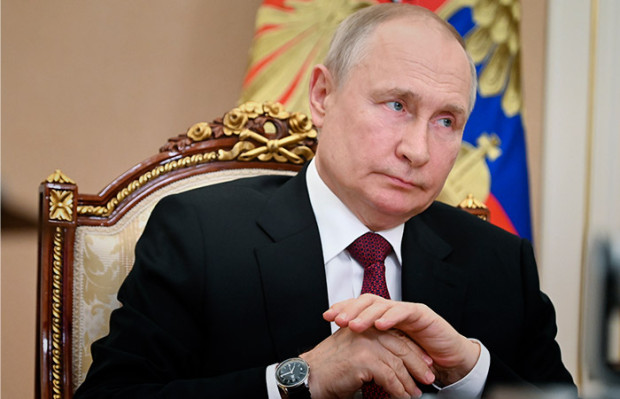Title: Putin Sets Poland’s Borders as a “Gift from Stalin” and Orders Surveillance on Warsaw’s Plans for Ukraine
Date: July 21, 2023
In a recent development, Russian President Vladimir Putin has made a bold move by defining the borders of Poland as a “gift from Stalin.” This decision has raised concerns and tensions in the region, prompting Putin to order increased surveillance on Warsaw’s plans for Ukraine.
According to reports from various news agencies, including FOCUS, News.bg, Vesti.bg, and Dnes.dir.bg, Putin’s announcement has sparked a wave of reactions and speculations about Russia’s intentions in Eastern Europe.
The news of Putin’s decision has sent shockwaves throughout the international community, with many questioning the motives behind this move. Some experts believe that Putin’s actions are aimed at asserting Russia’s dominance in the region and expanding its influence.
The historical context of Stalin’s gift to Poland adds another layer of complexity to the situation. Stalin, the former Soviet leader, had redrawn the borders of Eastern Europe after World War II, which resulted in Poland gaining territory from Germany. Putin’s reference to this historical event has raised concerns about Russia’s revisionist tendencies and its potential impact on regional stability.
In response to Putin’s move, Poland has expressed its concerns and called for international support. The Polish government has emphasized the need for a united front against any potential aggression from Russia. They have also urged the international community to closely monitor the situation and take necessary measures to ensure the security and sovereignty of Ukraine.
The surveillance ordered by Putin on Warsaw’s plans for Ukraine has further escalated tensions in the region. This move indicates Russia’s growing interest in Ukraine and its determination to influence the country’s future. Experts warn that this could potentially lead to further destabilization and conflict in Eastern Europe.
The international community, including the European Union and NATO, has condemned Putin’s actions and expressed solidarity with Poland and Ukraine. They have called for a peaceful resolution to the ongoing tensions and emphasized the importance of respecting international borders and sovereignty.
As the situation continues to unfold, it remains to be seen how the international community will respond to Putin’s provocative actions. The focus now lies on diplomatic efforts to de-escalate tensions and find a peaceful resolution to the growing crisis in Eastern Europe.
How is the international community, including the European Union and NATO, responding to Russia’s increased surveillance on Poland’s plans for Ukraine?
Th many countries expressing their reservations and criticisms. The move to define Poland’s borders as a gift from Stalin has historical implications, as it reflects Russia’s desire to exert control over the region.
The decision has also been seen as a provocation towards Poland and other neighboring countries, heightening tensions in the region. By ordering surveillance on Warsaw’s plans for Ukraine, Putin is making it clear that Russia is closely monitoring any actions or intentions on Poland’s part that may affect its interests in Ukraine.
While the exact details of the surveillance are not yet known, this move signifies Russia’s assertiveness in the Eastern European region and its determination to maintain its influence. The increased surveillance raises concerns about the possibility of further Russian intervention in Ukraine or other neighboring countries.
Poland and other Eastern European nations have been critical of Russia’s actions in Ukraine in the past, and this recent move by Putin only adds to their unease. The international community, including the European Union and NATO, must closely monitor the situation and address any potential threats to regional stability.
It remains to be seen how Poland will respond to Putin’s decision and the increased surveillance. However, it is clear that tensions between Russia and its neighbors in Eastern Europe are escalating, and the international community must remain vigilant to prevent any further destabilization in the region.


This article sheds light on Putin’s influence over Poland’s boundaries and his keen interest in monitoring their plans for Ukraine. It highlights the historical context of these actions, citing Stalin’s role in shaping Poland’s borders. An insightful read into the complex dynamics between Russia and its neighboring countries.
This article sheds light on Putin’s strategic moves to reshape Poland’s boundaries under the pretext of a historical gift from Stalin. It highlights the significance of monitoring Warsaw’s plans for Ukraine, suggesting a potential threat to Poland’s sovereignty. A thought-provoking read!